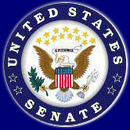Misaligned Japanese Yen Subject to Action Under New U.S. Senate Bill
 |
WASHINGTON--Stephen Collins, President of the Automotive Trade Policy Council, whose members include DaimlerChrysler Corporation, Ford Motor Company and General Motors Corporation, issued the following statement regarding the Senate Finance Committee’s introduction today of the “Currency Exchange Rate Oversight Reform Act of 2007”:
“U.S. automakers are pleased that today’s bipartisan legislation introduced by Senators Max Baucus (D-MT), Charles Grassley (R-IA), Charles Schumer (D-NY) and Lindsey Graham (R-SC) arms the U.S. Treasury Department with new tools to combat currency misalignment in Japan and other countries.
“Japan is in clear violation under the provisions of this bill, which cites ‘significant accumulation of foreign reserves’ as one criterion to define currency misalignment. Japan has accumulated over $900 billion in foreign exchange reserves during the past several years. Japan is also at the top of the list of countries that have engaged in ‘protracted large-scale intervention’, a second major criterion the bill uses to define currency misalignment. Between 2000 and 2004, the Japanese government spent over $400 billion in direct interventions in global currency markets to push down the value of the yen – the largest single currency intervention ever undertaken by a single country.
“It was only a matter of time before the beggar-thy-neighbor currency practices of Japan and others produced a legislative backlash in the U.S. We saw yesterday that first quarter Japanese economic growth hit 3.3 percent, outperforming both the U.S. and the European Union, even while the yen sits at its lowest level since 1986 on a real effective basis.
“Today the Japanese yen hit a four-and-a-half year low against the U.S. dollar. The Peterson Institute for International Economics issued a report earlier this year calling on the Japanese yen to appreciate between 25-30% against the dollar.
“Japan’s export-led economic policy has a direct impact on U.S. manufacturing. Japan now exports more autos to the U.S. market than it has in nearly twenty years. Although consumer demand in Japan for autos is stagnating, Japanese automakers have expanded production capacity in their Japan facilities to export even more vehicles. Just yesterday, it was revealed that Toyota has invested three times as much in Japan as in North America over the past three years despite selling more vehicles in the U.S. than they do at home.
“The Senate Finance Committee bill, along with a Senate Banking Committee bill to be introduced soon, is sending a strong signal to Japan that its years of dependence on the artificially weak yen to prop up economic growth are coming to an end.”
The Automotive Trade Policy Council, Inc. (ATPC) is a Washington, D.C.- based non profit trade association that represents the common international economic, trade and investment interests of its member companies: DaimlerChrysler Corporation, Ford Motor Company and General Motors Corporation.


